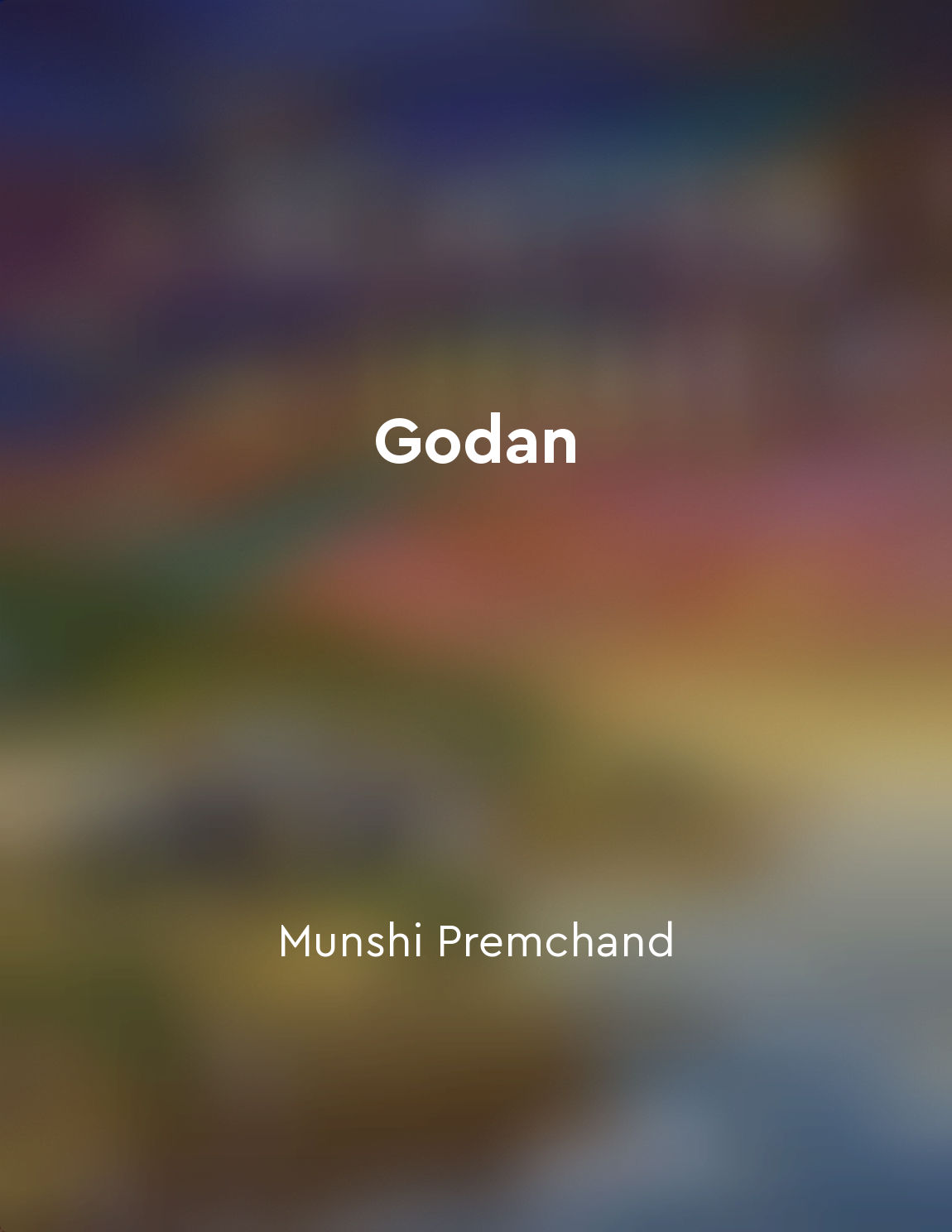Sacrifice is necessary for the greater good from "summary" of Revolution Twenty 20 by Chetan Bhagat
In Revolution Twenty 20, the theme of sacrifice for the greater good is a recurring motif that runs through the narrative. The characters in the novel are faced with difficult choices that often require them to make sacrifices in order to achieve a larger goal or to protect those they care about. These sacrifices come in various forms, whether it is giving up a personal ambition, letting go of a past relationship, or even putting one's own life on the line for the sake of others. One of the key characters in the novel, Aarti, exemplifies this theme of sacrifice. She is willing to give up her own dreams and aspirations in order to support her family and help her loved ones. Despite facing numerous challenges and setbacks, Aarti remains steadfast in her commitment to do whatever is necessary for the well-being of those she cares about. Her willingness to sacrifice personal happiness for the greater good is a poignant reminder of the lengths to which people will go for the sake of others. Similarly, Gopal, another central character in the novel, is also faced with the dilemma of making sacrifices in order to achieve his goals. He is willing to take risks and make difficult choices in order to improve his circumstances and create a better life for himself and his family. Gopal's journey is marked by moments of sacrifice and selflessness, as he navigates the complexities of life in a society that is plagued by corruption and inequality.- Revolution Twenty 20 explores the idea that sacrifice is often necessary in order to achieve positive change and make a difference in the world. The novel challenges readers to consider the implications of their own choices and actions, and to reflect on the ways in which sacrifice can lead to growth, transformation, and ultimately, a better future for all.
Similar Posts
Eddie dies saving a little girl at the amusement park
Eddie felt a sudden jerk beneath him, followed by a loud, sickening snap. He was falling, plummeting towards the ground. As he ...
Battles fought with fierce determination
In the midst of chaos and uncertainty, our protagonist stood tall, his eyes ablaze with a fiery determination that could not be...

Critique of societal norms and values
The novel "Godan" sheds light on the deep-rooted societal norms and values that govern the lives of the characters. Premchand m...
Survival instincts drive hench to make risky decisions
In the high-stakes world of henching, where danger is always lurking around the corner, survival instincts play a crucial role ...
Influence change through civil disobedience
Gandhi firmly believed in the power of civil disobedience as a means to bring about change. He saw it as a way to peacefully re...

Greed can destroy relationships and lead to downfall
In the pursuit of money, people can do crazy things. They can betray their loved ones, deceive their friends, and ultimately de...
Characters confront their pasts and shape their futures
Throughout the narrative of 'The Glass Palace', the characters find themselves grappling with the shadows of their pasts while ...

Social issues addressed through characters
The characters in 'Godan' serve as a reflection of the various social issues prevalent in society during that time. Through the...
Political corruption undermines democracy
Political corruption thrives in Annawadi, where officials who are meant to protect the people instead exploit them for personal...

